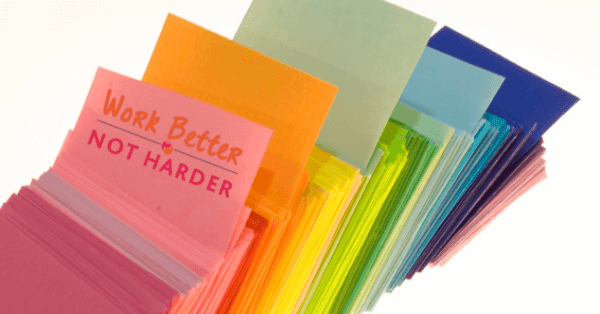Do You Need an Editorial Calendar?
An editorial calendar makes it easy for people to work together, helping them follow a plan.
What if there's only you in your business? Does it make sense to create an editorial calendar? Absolutely, but for different reasons.
If your plan is in your head, writing it out will reduce stress - now you don't have to remember it. Handwriting activates the creative part of your brain and your memory. More importantly, having a plan will prep your brain to be on the lookout for appropriate content.
You can use fancy spreadsheets, or find a detailed editorial calendar online. You can use coloured file cards, sheets of paper, or a whiteboard. The most important thing is that it works for y-o-u. It doesn't have to be like anyone else's editorial calendar.
Of course, before you create an editorial calendar, you need to generate a bunch of content ideas.
If you are like me, your content ideas may not be well organized. Creating an editorial calendar forces you to create organization among the chaos (another benefit).
Here are three suggestions for creating your editorial calendar. These are simple and easily customized (even combined) to work for any small business owner who doesn't need a super fancy system for managing content plans.
#1. Big Picture View (whiteboard)
This is my preferred planning tool. It's very fast and keeps my plan top of mind as it's propped by my desk. I use two sheets of white corrugated plastic (backs of old transit signs). One is my active editorial calendar, reaching out for 6 months. The second becomes my active calendar as time goes on and plans change.
#2. Monthly or Weekly View (paper)
Another simple method - you already have everything you need at your desk. Use sheets of (coloured) paper, one for each month or week, as you prefer to plan. Transfer your content ideas from your idea catcher to your sheets on a regular schedule, perhaps once a week. Keep these sheets in a folder on your desk, or pinned up side-by-side near your desk. The more in-your-face, the better.
#3. Flexible View (file cards)
If you've read any of Sue Grafton's mysteries, you know her private investigator Kinsey Millhone uses file cards to organize clues and generate new leads. Put all your content ideas on separate (coloured) file cards; this makes it easy to add inspiration as it comes to you. To organize your ideas, grab some (coloured) envelopes and label them by month/week, or whatever works for you. Sort your file cards into the envelopes, or use elastic bands and tags. As a bonus, these cards are mobile-friendly; throw them in your briefcase and review while waiting for your first coffee meeting. Carry around a few blanks for those ideas that hit you on the fly. To change your perspective, shuffle the cards as Kinsey does.
The only way to make an editorial calendar work best for you is to try it, and revise. Start somewhere. Make sure it is easily accessed, visual and tactile. Use stickers and highlighting to spark inspiration!
originally published in Work Better, Not Harder newsletter July 27, 2017
Click to Tweet this Article










Comments
Post a Comment